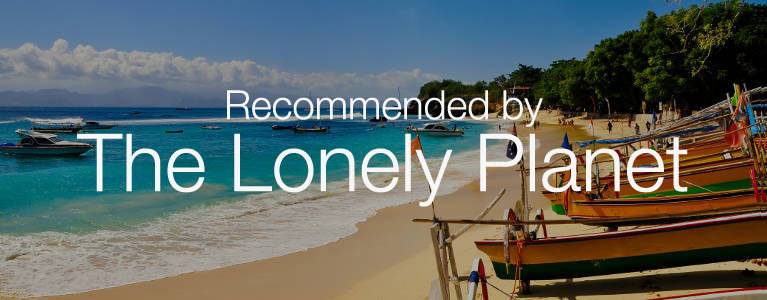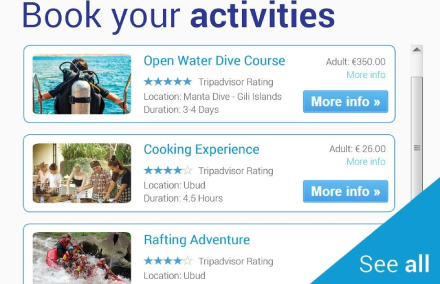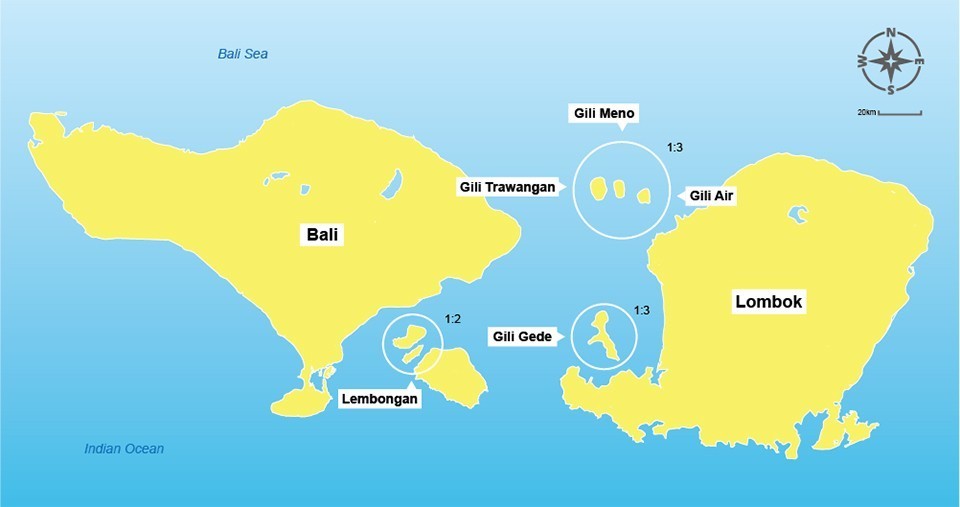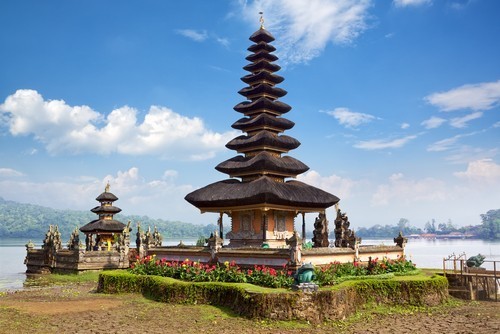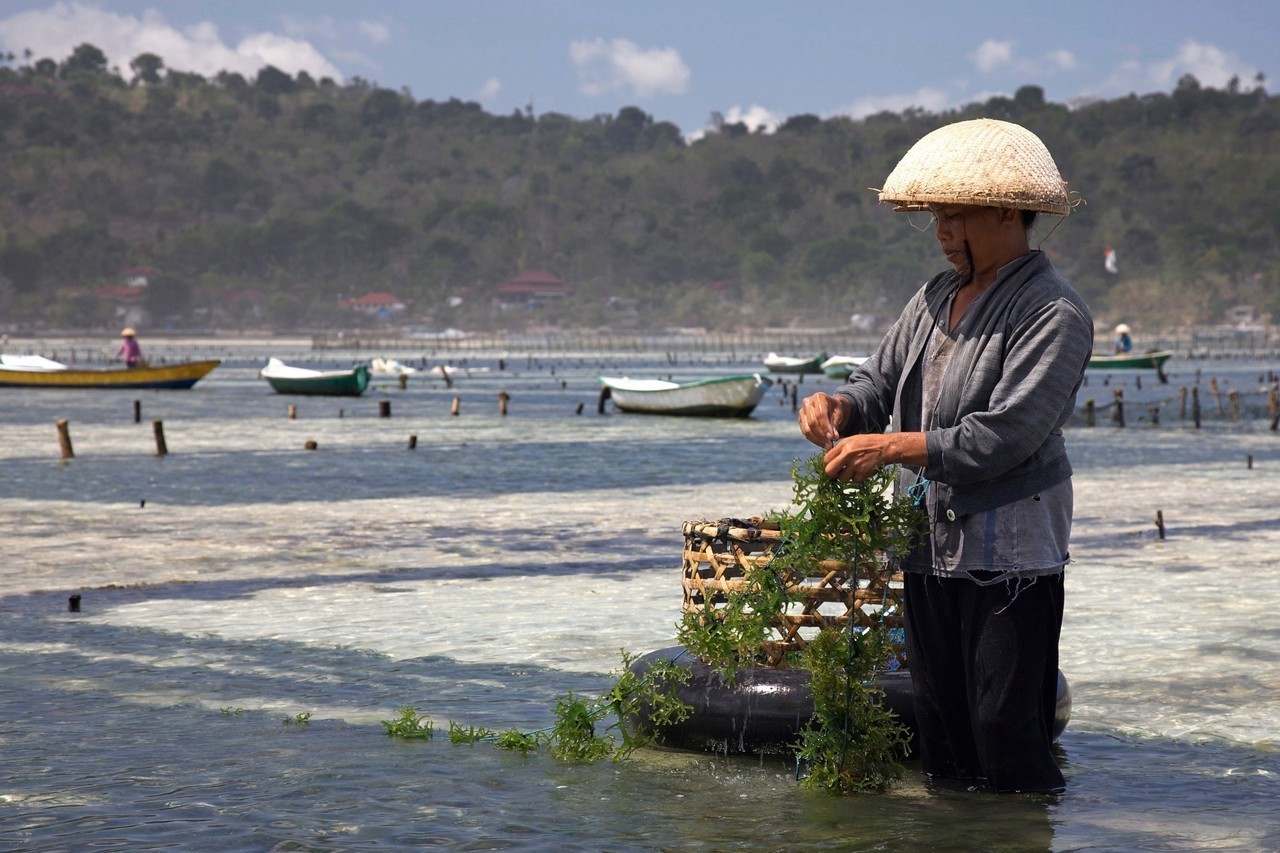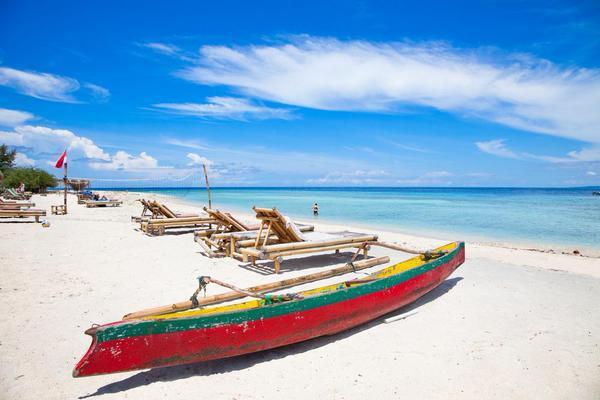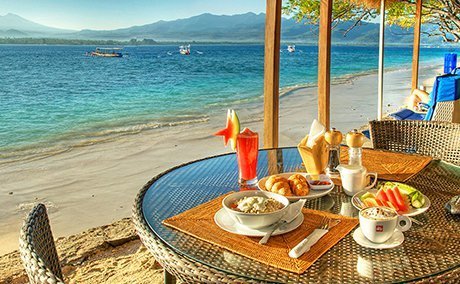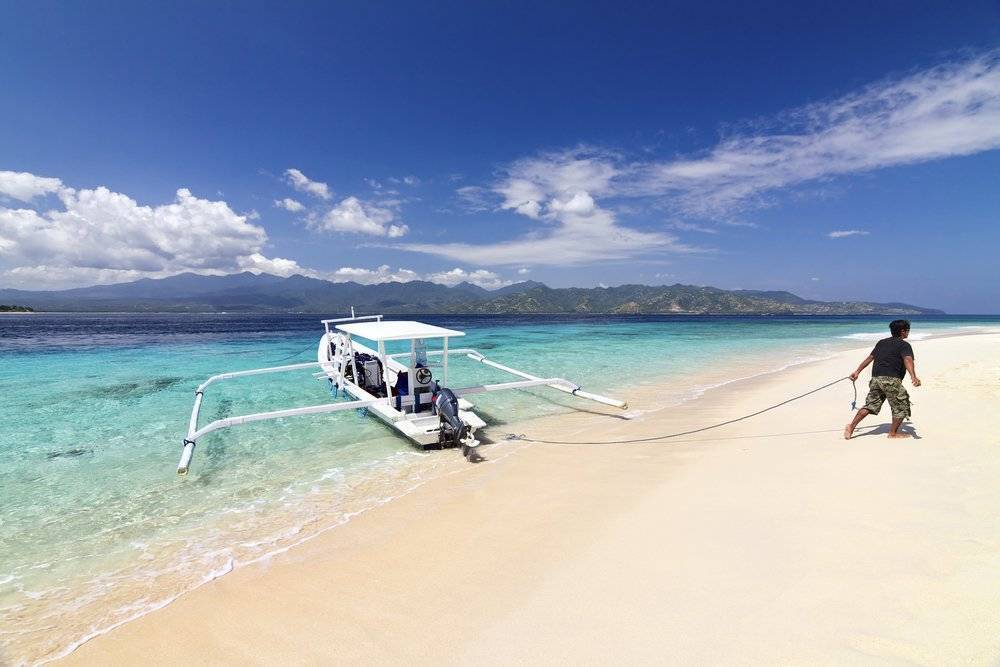Regional Travel Guide
Everything you need to know about travel in Bali, Lombok, Lembongan, Penida and the Gili Islands. This culturally and geographically diverse region boasts some of the most spectacular places to visit in southeast Asia, ranging from rice paddies, Hindu temples and active volcanoes to pristine beaches, coral reefs, surfer's paradises and tiny tropical islands.
For specific travel guides relating to each of the main islands check our individual pages above. Alternatively, you can click on the island names in the below map, or after reading this general guide, access them by selecting from the boxes at the bottom of the page. Underneath the map are some general tips for first-time visitors to Bali, Indonesia and the region. For all the latest travel news and local guides, also check out our Gili Islands Blog. If you're looking for information on fast boat tickets, please take a look at our how-to book page or use the search box on our homepage.
Travel tips Bali region
As Bali is becoming more and more popular, so is the surrounding region. Often travellers expand their trip by going to the nearby islands such as Nusa Lembongan, Nusa Ceningan, Nusa Penida, and the Gili Islands or by making a trip to Lombok. Nusa Lembongan can be considered as a quieter version of Bali with still enough to do but on a smaller scale. Nusa Penida is a remote island offering some amazing viewpoints and fewer tourists, althought the island is getting more popular. The Gili Islands are a diver's dream and depending on which island you're visiting it can be a very touristic or laid-back visit. The lesser-known Gili Islands in South Lombok are very quiet but well worth a visit as they are less known amongst tourists. Lombok is getting more attention and, like Bali, it hosts a wide variety of things to do. Wherever you're going in the region, you can find some of the most frequently asked questions below.
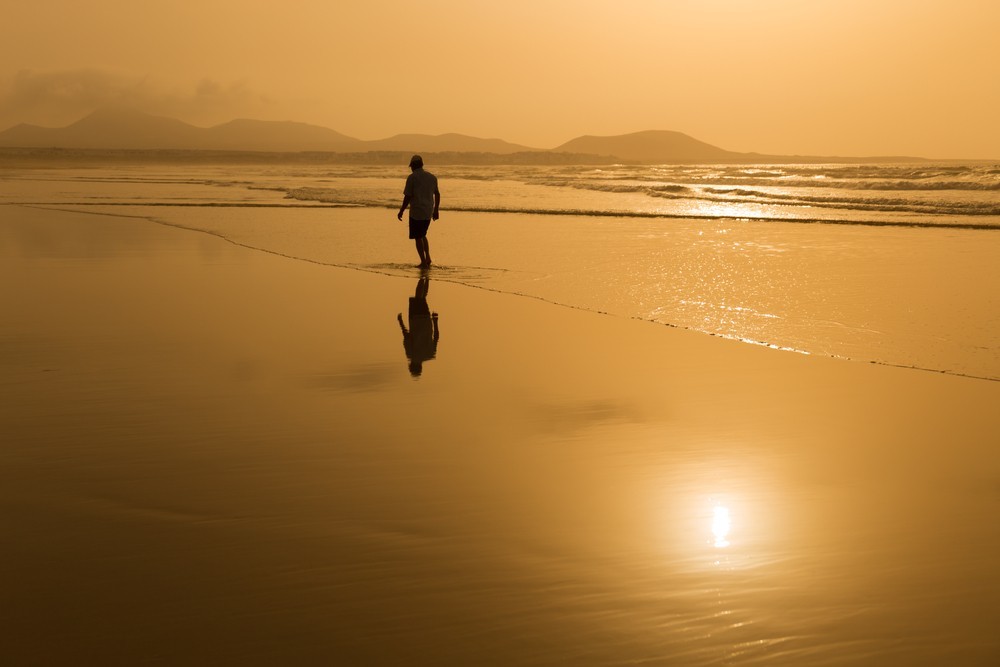
How Safe Is Bali?
In general Bali is considered safe. With regards to your personal safety, behave as you would at home. Always lock the door to your hotel/guesthouse room; even when in the room. Don’t leave bags/valuables unattended. Take care when being offered drinks from someone you don’t know. There have been a number of deaths in recent years from Methanol poisoning throughout the region. The source is locally distilled spirits, so you are well advised to stay away from these, as well as cocktails containing local spirits. Even if you are ordering an imported spirit if you suspect it is not what you are paying for then send it back. If you are unsure the simplest thing to do is just stick to the beer and wine.
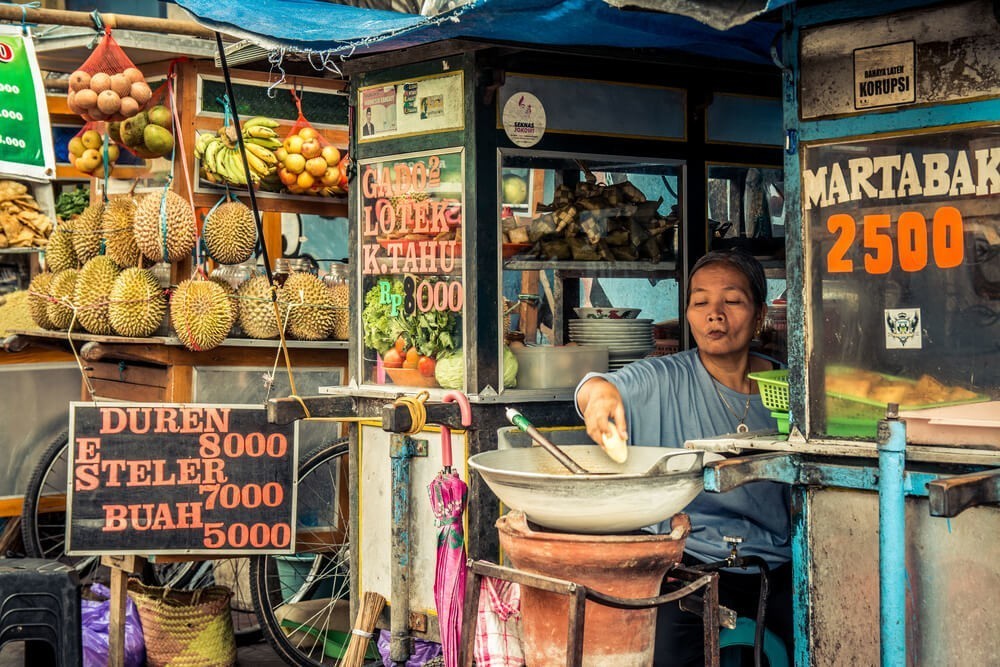
What is the weather like in Bali/Lombok?
Like all tropical climates, Indonesia has two seasons – Wet and Dry. The wet season runs from October to March (with January and February being the wettest months). The dry season runs for the rest of the year. The average temperature is around 30 degrees Celsius and humidity is 70%.
Is there malaria in Bali?
Although there is malaria throughout Indonesia, the risk to travellers staying in the main tourist areas of Bali, Lombok and the Gili islands is quite small and malaria tablets are usually not prescribed. Always check with your local health authority for the latest recommendations. Although the risk of malaria in Bali may be small, there are mosquitoes and with the increase of dengue fever throughout S.E. Asia, it’s recommended to use repellents and stay covered around sunrise/sunset.
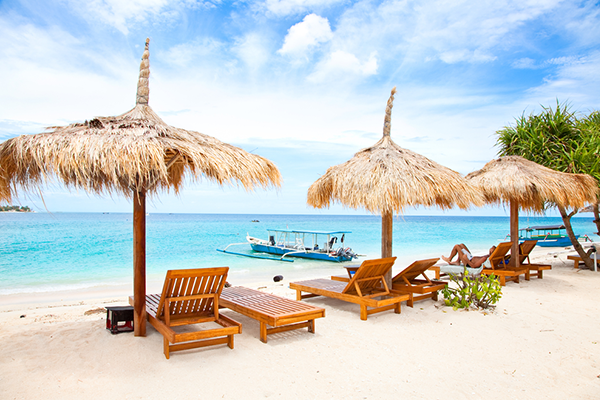
What are the visa requirements for Bali?
Visa Requirements
We advise that you check with the Indonesian embassy in your own country to check the latest rules. Currently (Oct 2025), nationals from nine ASEAN countries do not need a visa for stays of up to 30 days.
For 80 + countries (including most of Europe, Asia and north Americas) Indonesia has introduced an Electronic Visa, B1 - Tourist Visa (visa on arrival) in addition to the re-instated Visa on Arrival. You can apply online in advance of travel or you can pay for the visa on arrival when you arrive at the airport in Bali. We advise arranging this in advance as it saves time in long queues at the airport.
You can apply online for your B1 - Tourist (visa on arrival) here. You will need a photo of your passport in both JPG and PDF format, a passport photo, and a PDF file showing your return ticket out of Indonesia. The B1 - Tourist (visa on arrival) allows you to stay in indonesia for 30 days and can be extended once online for another 30 days.
If your country is not on VoA List or/and you intend to stay longer than 60 days, you will need the B211A Visit Visa, extendable twice for 60 days each.
Mandatory Digital Arrival Card
Travellers will receive a QR code via email after submission, which must be shown at the airport.
Bali Tourist Levy
How much is the departure Tax in Bali?
There is no departure tax anymore as it is now included in the cost of your flight ticket. Transit passengers continuing their journey on the same day, and infants under the age of 2 are exempt.
Are there port fees/taxes, departure fees/taxes?
Some ports have service fees:
| Port | In / Arrival | Out / Departure |
| Padang Bai | IDR 10.000/PAX | |
| Serangan | IDR 10.000/PAX | |
| Gili trawangan | IDR 20.000/PAX | IDR 20.000/PAX |
| Gili Meno | IDR 20.000/PAX | IDR 20.000/PAX |
| IDR 35.000/PAX (shuttle boat) | ||
| Gili Air | IDR 20.000/PAX | IDR 20.000/PAX |
| Bangsal | IDR 10.000/PAX | |
| Senggigi | IDR 4.000/PAX | |
| Penida | IDR 25.000/PAX |
If the port fees are not included in your ticket(s), they will be collected in cash upon check-in at the port.
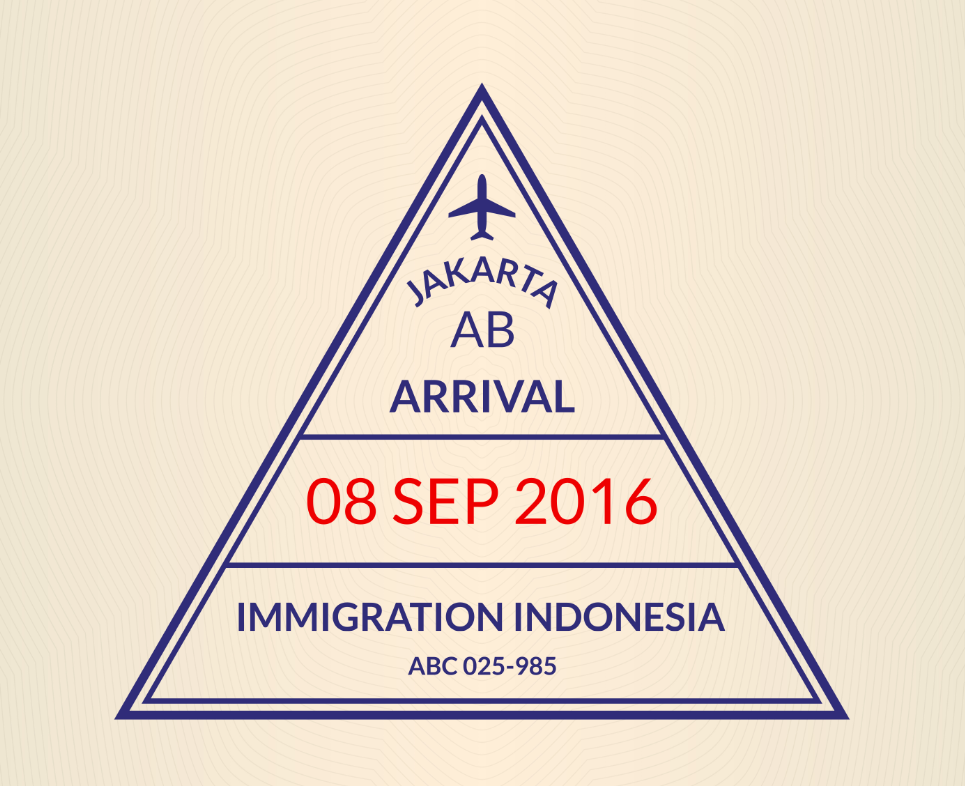
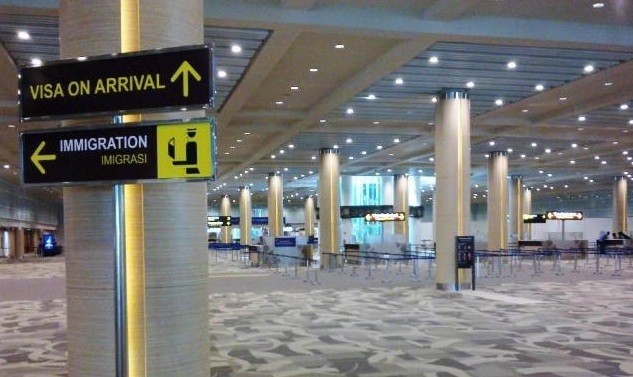
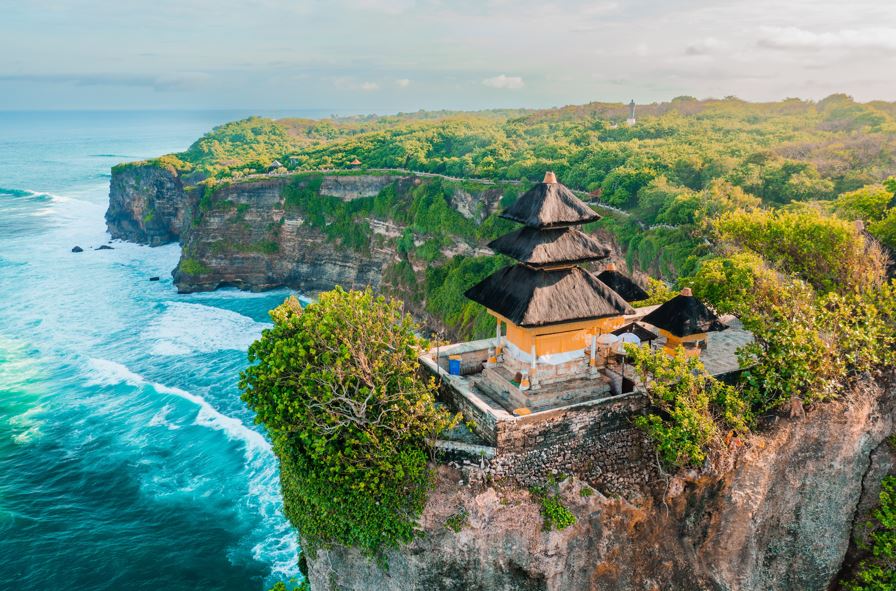
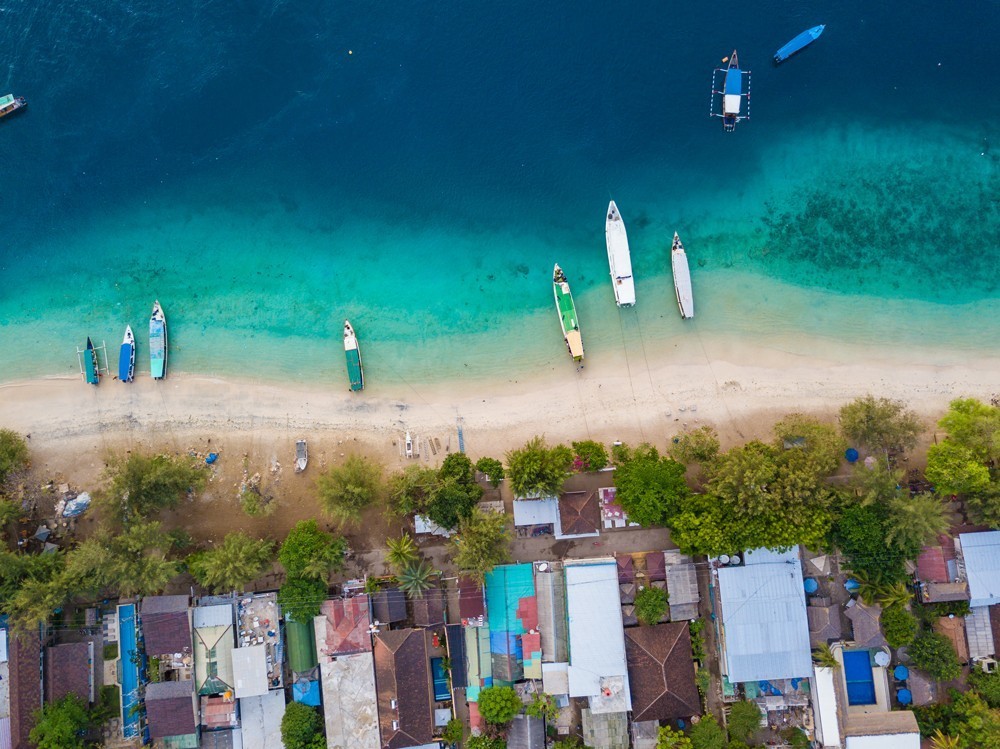
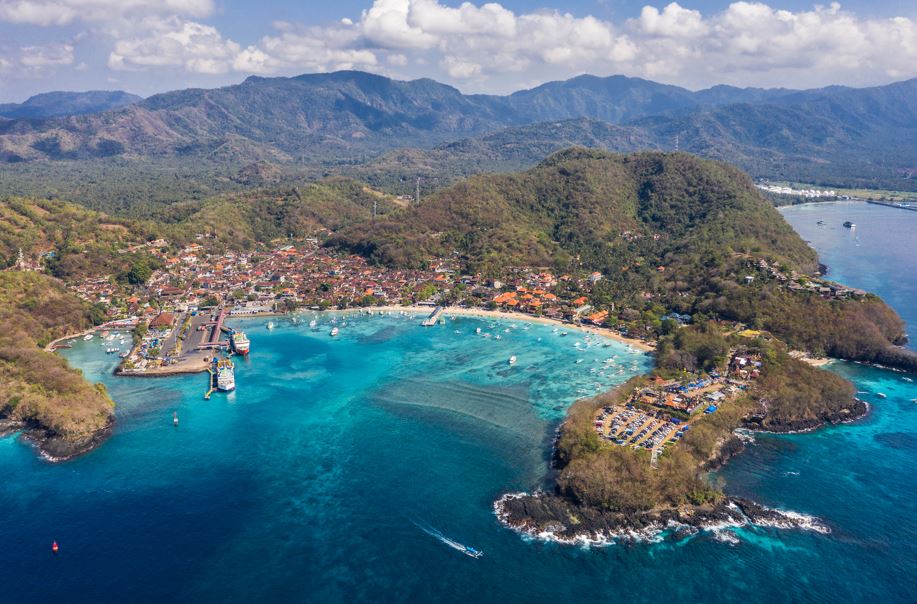
What is the currency in Bali?
The local currency is the Rupiah (IDR). US dollars and Euros are accepted, however, be careful of the exchange rates quoted as they may not always be as accurate as at the currency exchanges:
- US$1 = IDR 15,494 (as of Oct 2023).
- €1 = IDR 16,401 (as of Oct 2023).
The best is to change money at official money changers and/or banks. ATMs can be found in most major towns/cities.
Take cash when visiting rural destinations. Credit Cards are accepted at most hotels as well as the majority of shops and restaurants in tourist areas.
There have been a few scam reports with small money converters. The Money Changers we recommend are BMC and Central Kuta Money Exchange.
Best things to shop for in Bali/Lombok?
Shop for the Indonesian textile batik, silver, leather crafts, baskets, cloth, porcelain, tin art objects, wood, ikat, masks, coffee, tea and honey.
Be prepared to bargain for everything! Start low and expect to meet the seller at least halfway.


Staying Connected: eSIM and Mobile Data in Bali
-
SIM Cards
The most convenient place to purchase a physical SIM is at the airport before exiting the arrivals hall. Vendors here can assist with the often-complicated registration process. Prices are slightly higher than in-town telecom shops, but the convenience and registration help make up for it.
If buying locally, note that not all shops offer registration services.
Here are two options:
- Telkomsel is Indonesia's most reliable network, offering the widest coverage.
- XL Axiata is another solid choice.
-
eSIMs
eSIMs are a hassle-free and modern alternative to physical SIMs, allowing you to activate your plan online before arrival. Start the process 48 hours before you leave to ensure instant connectivity when you land.
Here are two options:
- Balisim: Offers Telkomsel eSIMs with excellent coverage and value for money. We have tried and tested Balisim, it's quick and easy to sort out. Just purchase a Bali eSIM package (25GB for approx US$25). After one month, even if you have not used all your data, you will need to top up your credit. Purchase Telkomsel data top up here.
After you make your online purchase you will be contacted by email and asked to fill in a short form giving information like your flight arrival details. You will be guideed through the registration process, but most of it is done for you. On arrival in Bali you will have immediate data connection. We highly recommend arranging your eSIM before you arrive in Bali as it saves a lot of time, especially after a long flight.
- Airalo: Popular among digital nomads, Airalo provides flexible eSIM plans for Indonesia.
You can also check out MobiMatter’s eSIM Guide to compare eSIM options and find the one that suits your needs.
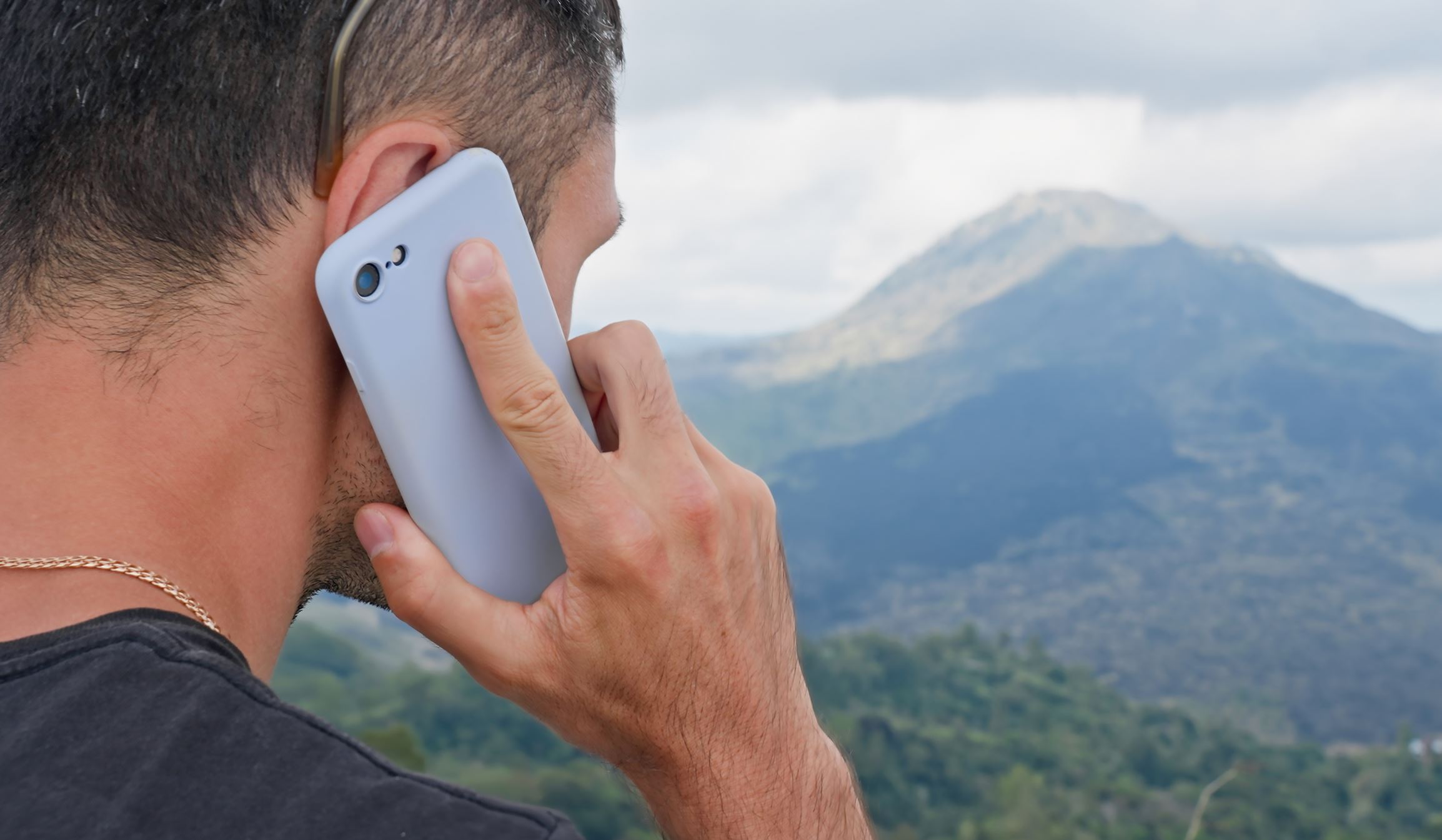

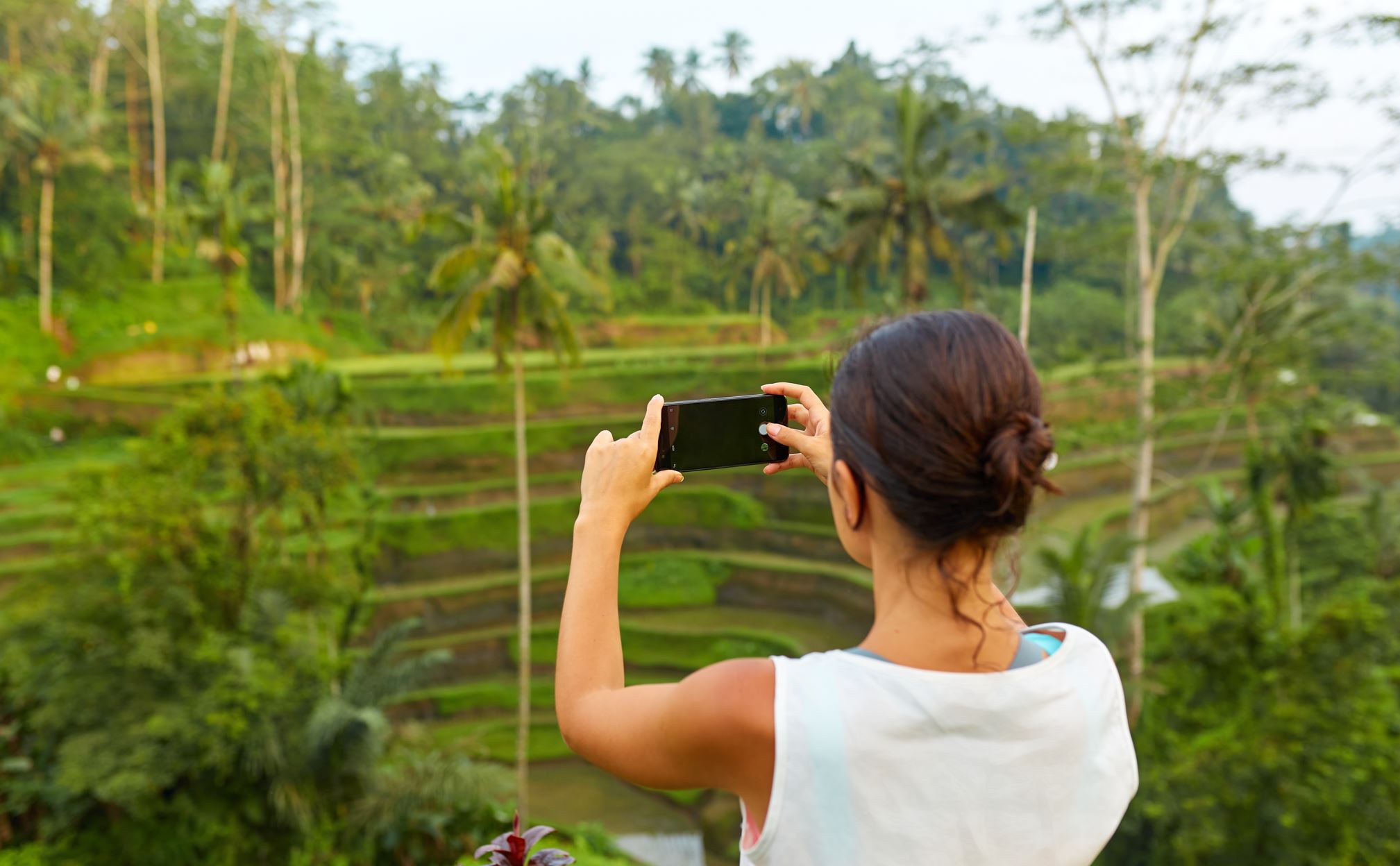
Best ways to get around Bali?
The easiest way to get around is by taxi or by using the app Gojek/Grab; however, there are local transport options available. Trans Sarbagita is arguably the only public transport provided and operated by the government. Trans Sarbagita is a big-capacity bus transportation modes that serve some routes including Denpasar, Bangli, Gianyar and Tabanan. Bemo’s (mini-bus/van) travel set routes between towns and cities and can be flagged down anywhere along their route. They’re usually very cramped and journeys can be quite time-consuming; although any ride in a Bemo is definitely an adventure! Car and motorbike hire is another possibility. No real need to book in advance as prices locally will probably be cheaper. Whether it’s a small jeep, dirt bike or moped always check the vehicle carefully before signing for it. Insurance, if offered, is usually minimal so always check your liability and policy restrictions. There are also a variety of apps that can be used to source cheap transport, Grab and Go-Jek are widely used in Bali, however not accepted in all areas.
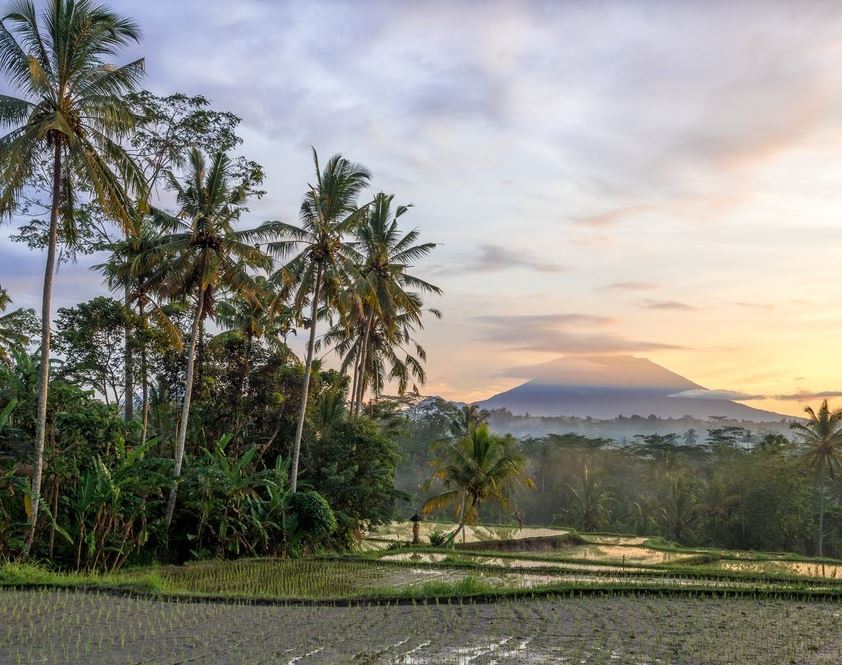
How to get to/from Denpasar airport?
Unless your hotel provides a shuttle service, the best way to get to/from the airport is by taxi. Book your taxi at the office just outside arrivals. Fixed prices ensure you pay the exact fare and taxis are available to Kuta, Nusa Dua, Sanur, Seminyak, Ubud and all major tourist destinations.
How to get to/from Lombok airport?
From the new international airport in Lombok you can pre-book a private transfer through our sister website www.gili-islandtransfers.com to avoid a lot of hassle. We recommend prearranging your airport transfer so that a driver is waiting for you to take you directly to your destination. You can use the search box on our sister website to check prices and make a booking.
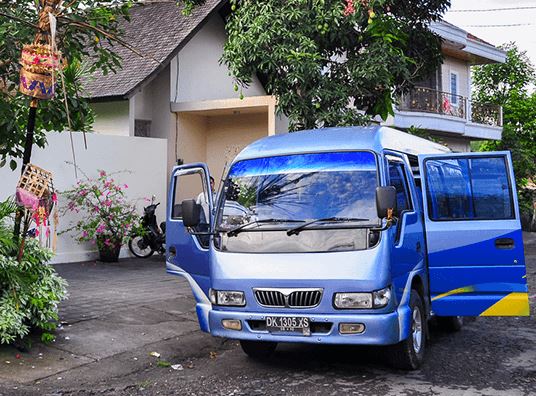
General tips Bali region
-
Ladies are advised to always carry a sarong – they are light and cheap, and you may need to cover up if you find yourself near a temple or mosque
-
Apart from the larger department stores and supermarkets, no prices are fixed - even if the vendor says it is. You can always haggle!
-
When there are monkeys around, protect your belongings because they are curious and love to steal things!
- Learn how to say ‘no’ to the hawkers politely; a simple but strong “Tidak, terima kasih” (Tee-dak, ter-ee-ma ka-see) will do the trick.
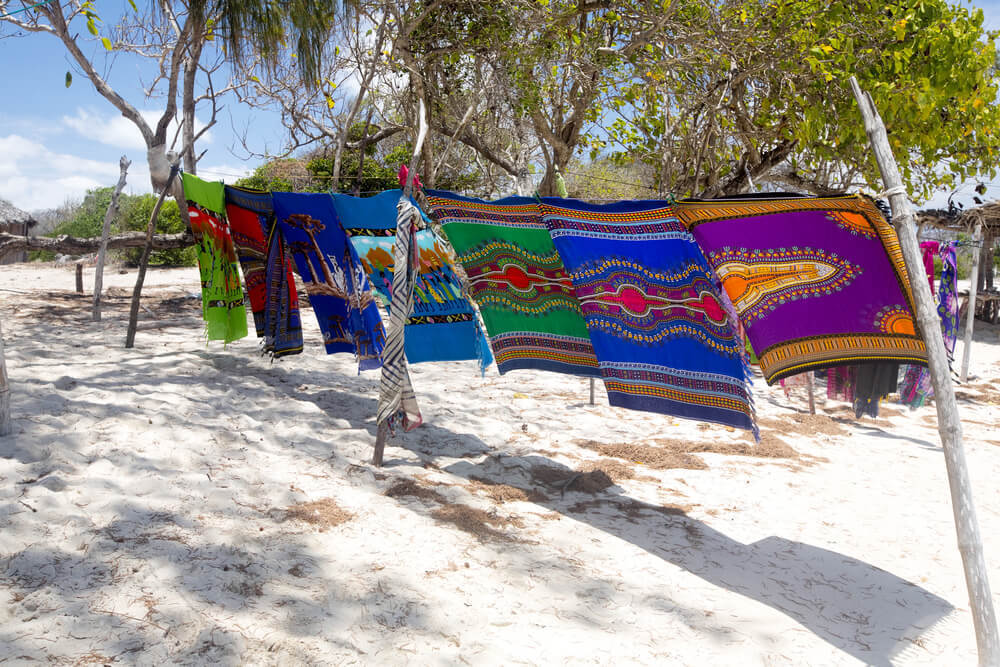
-
The dogs in Indonesia (particularly Bali) are known to be rabid and they’re everywhere. If you find one following you, hiss at it loudly. Never run.
-
Never sunbathe nude or topless (women), and cover up away from the beach (no bikinis), when on Lombok and the Gilis. Although it may feel like Bali, the locals are Muslims so it’s good to show some respect.
- If you’re travelling with kids to Bali, and want some time to yourself, Cubby House Kids Club offers the perfect solution for holidaying parents. Drop the kids off for a few hours with lots of activities and games while you go shopping or treat yourself to a relaxing massage.
- The voltage in Bali is: 220V – It’s recommended to get a universal adapter.

With its varied landscape of hills and mountains, rugged coastlines and sandy beaches, lush rice terraces and barren volcanic hillsides all providing a picturesque backdrop to its colourful, deeply spiritual and unique culture, it’s no wonder Bali has become known as the Island of the Gods.
Lying to the east of Bali, Lombok has wonderful beaches, enchanting waterfalls, Indonesia’s second highest volcano, unspoilt forests and stunning landscapes. In addition to its natural beauty, Lombok has a rich and endearing culture, with its indigenous Sasak people being one of the many unique attractions of the island.
Only 20 kilometres off the southwest coast of Bali, this island paradise is no longer just a day-trippers’ attraction, but has become a popular holiday destination in its own right. Uncrowded white sand beaches, excellent diving and snorkelling, along with world-class surf breaks, makes Nusa Lembongan the ideal destination for families, extreme sports enthusiasts or anyone looking to have an island experience without the hustle and bustle of neighbouring Bali.
Gili Trawangan is the most visited of the three and has earned a ‘Party Island’ reputation amongst travel enthusiasts internationally. Once a backpacker’s haven – with basic beach huts and simple bars, serving concoctions that offer ‘free lunar transport’ – Gili Trawangan has undergone some dramatic changes over the past ten years and now caters to a decidedly more upmarket crowd, often with family in tow, all seeking that tropical island experience with the luxuries of home.
Aside from the laid-back beach culture, the main draw of the island is scuba diving. Accommodation choices range from budget guesthouses through a large selection of mid-range beachfront hotels, to resorts and luxury villas.
Although closest to mainland Lombok, Gili Air lies somewhere between the tranquillity of Gili Meno and the bustle of Gili Trawangan – making it a great option for backpackers and families wanting to get away from the crowds and acquaint themselves with local culture. As with Meno, the pace of life is slow and endearing but like Trawangan there’s plenty to do, such as diving, snorkelling and even some surfing by day, to live music and restaurants at night. There’s a surprisingly wide range of accommodation on the island to suit every budget, on the beach or set back in the coconut groves.
Gili Meno may be the smallest and quietest of the three islands but it’s as close as you’ll get to a true tropical island getaway. Sandwiched between Gili Trawangan and Gili Air its stunning beaches and laid-back charm provide a great escape for honeymooners looking for seclusion or those just wanting to get away from it all! Accommodation is provided by a variety of small hotels and beachside bungalows; with more luxurious options slowly being developed. Dining is a casual affair with fresh fish BBQs dominating the menus of the beachside cafes. And when not relaxing, there’s plenty of great diving and snorkelling on offer as well as bird and turtle sanctuaries to visit.

